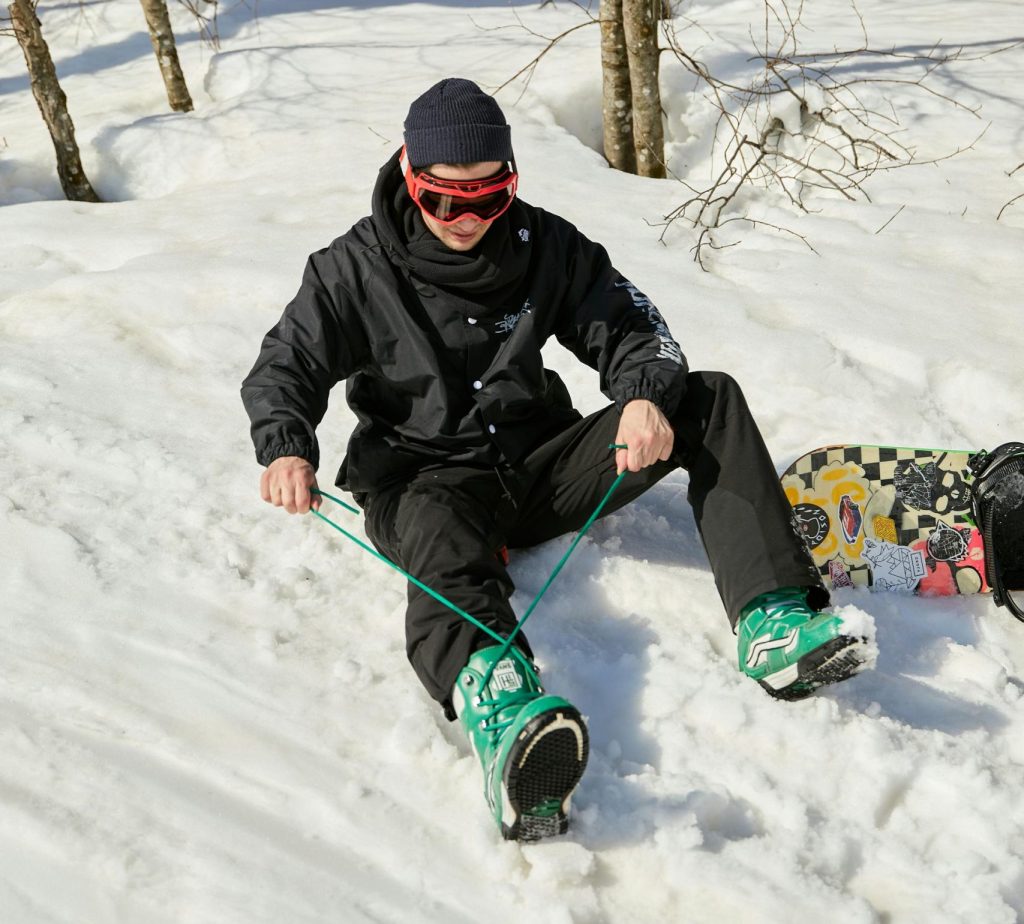This is easily one of the most common questions riders ask us (especially if they’re buying online).
Do snowboard boots run small, or are they true to size?
And the honest answer... it depends. Some brands run small, some don’t, and the right size for you depends on more than just a number on the box.
This guide breaks down how snowboard boot sizing actually works, how different brands fit, and how to make sure the boots you pick actually feel good when you ride.
How Snowboard Boot Sizing Works
Most snowboard boots use the Mondopoint (MP) system. It’s based on the length of your foot in centimeters—not your US or UK shoe size. So if your foot is 27 cm long, your Mondopoint size is 27.
That sounds simple, but the actual fit can still vary between brands, models, and even liner types.
Snowboard Boot Sizing vs. Shoe Sizing
Biggest beginner mistake? Assuming your boot size = your sneaker size. But snowboard boots are supposed to fit snug. Here’s a basic comparison:
| US Shoe Size | Mondo Size | EU Size |
|---|---|---|
| 8 | 26 | 41 |
| 9 | 27 | 42 |
| 10 | 28 | 43 |
| 11 | 29 | 44 |
Do Snowboard Boots Run Small or True to Size?
Most boots feel a bit tight at first—that’s normal. They’re designed to “pack out” as you break them in. But the initial sizing still matters, and not all brands run the same.
How Popular Brands Fit
| Brand | General Fit | Notes |
|---|---|---|
| Burton | True to size | Snug, heat-moldable liners |
| Vans | Runs small | Narrow fit; size up if in-between |
| Salomon | True to size | Medium width, comfy liners |
| DC | Runs large | Often feels a half-size bigger |
| ThirtyTwo | Runs small | Tight at first, breaks in well |
| Ride | True to size | Balanced comfort + support |
| K2 | Runs small | Tighter toe boxes in many models |
Quick tip: If you’re between sizes, consider sizing up with Vans, ThirtyTwo, or K2. For DC, you might even size down slightly.
How to Measure Your Feet for Snowboard Boots
- Stand on a piece of paper with your heel against a wall.
- Trace around your foot with a pencil held upright.
- Measure from the heel to the longest toe in centimeters.
- That’s your Mondopoint size (round up if you're in-between).
Bonus: If you’ve got wide or narrow feet, measure width too. That’ll help you know if you need a wide-fit boot.
How to Know If Your Boots Fit Right
- Toes: Should just touch the liner when standing, pull back slightly when you bend into riding stance.
- Heel: Shouldn’t lift more than a few millimeters when flexing forward.
- Pressure points: Wear boots for 10–15 min and flex around. No pinching or numbness? You’re golden.
Breaking In New Snowboard Boots
New boots feel tight at first—that’s normal. Here’s how to break them in faster:
- ✅ Wear them at home: Walk around for 30–60 minutes a day
- ✅ Heat-mold them: Most shops offer this, or warm them gently with a hairdryer before wearing
- ✅ Ride 3–5 days: Liners will pack out and fit your foot better over time
Common Fit Problems & Fixes
Too Tight?
- Try thinner snowboard socks
- Heat mold the liners
- Loosen top laces if you have arch or toe pressure
Too Loose?
- Try different lacing zones (tighten ankle more)
- Use heel hold inserts
- If still sloppy—wrong size or shape for your foot
💬 Final Thoughts
So—do snowboard boots run small? Sometimes. But what really matters is how they feel when you ride. Don’t panic if they feel snug on day one—that’s how they’re supposed to fit. Just make sure they’re not crushing your feet or letting your heels float around.
Use Mondopoint sizing as your guide, try on a few pairs if you can, and don’t forget: most boots break in after a couple of solid days on snow. Get the fit right now, and your riding will feel better for the rest of the season. Good luck!


